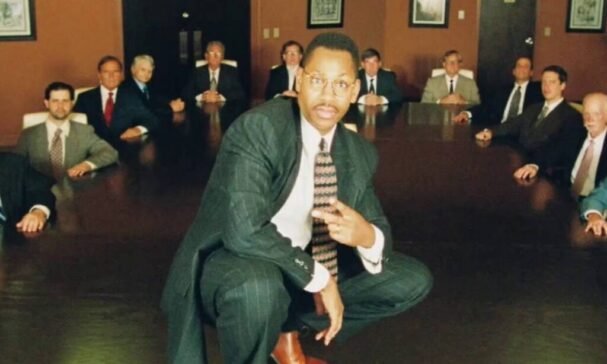The Blackest Movie of All Time in Atlanta Season 4
In a groundbreaking episode of Atlanta season 4, viewers were treated to a mockumentary about the creation of ‘the blackest movie of all time’ by Thomas Washington, the first black Disney CEO. However, this character is purely fictional but serves as a satirical exploration into African American culture and Hollywood’s treatment of diversity. Let’s delve deeper into this thought-provoking episode and its underlying themes. The narrative unfolds as Thomas endeavors to create ‘the blackest movie of all time,’ shedding light on African-American culture and representation in mainstream media.
The concept behind this mockumentary style episode is both intriguing and socially relevant. While Thomas Washington may not exist in reality, his story serves as a poignant exploration of diversity and inclusion within the entertainment industry. By placing a spotlight on the challenges faced by marginalized communities in Hollywood, Atlanta offers a critical lens through which to examine power dynamics and representation.
The Creation of ‘the Blackest Movie of All Time: Thomas Washington and Disney
Thomas Washington, portrayed as the first black Disney CEO in the early ’90s, embarked on a mission to create a film that authentically depicted aspects of African-American culture. This ambitious project aimed to challenge stereotypes and showcase diverse narratives within mainstream cinema. Despite facing challenges and setbacks, Thomas remained determined to leave his mark on Disney with this revolutionary film.
A Reflection on Diversity in Hollywood

Through the lens of satire and humor, Atlanta sheds light on the lack of representation and opportunities for people of color in the entertainment industry. The fictitious appointment mix-up that led to Thomas Washington becoming CEO. Highlights systemic issues around racial equality and unconscious bias in corporate settings. By poking fun at these realities, Atlanta prompts viewers to reflect on broader societal issues related to diversity and inclusion.
The portrayal of Disney’s internal dynamics through the lens of this fictitious narrative also prompts us to consider real-world instances where individuals from underrepresented backgrounds have broken barriers in their respective industries. One such trailblazer is Floyd Norman, Disney’s first African American animator whose journey parallels some aspects of Thomas Washington’s storyline.
Inspiration from Real-Life Trailblazers
While Thomas Washington may be a fictional character. His story resonates with real life pioneers like Floyd Norman. Disney’s first African American animator. Norman’s journey reflects struggles against racism while also showcasing opportunities for individuals willing to break barriers. His experience underscores the importance of representation in media and how trailblazers pave the way for future generations.
Challenging Perceptions Through Satire
Atlanta unique storytelling approach blends satire with social commentary seamlessly. By presenting an alternate reality where a black CEO spearheads cultural change at Disney through filmmaking, the show challenges conventional narratives about power dynamics and creativity in Hollywood. The absurdity mixed with poignant insights invites audiences to question existing norms within both entertainment institutions and society at large.
The Legacy Beyond Fictional Narratives
Despite being fictionally constructed, Thomas Washington leaves behind a lasting impact through his vision for ‘the blackest movie.’ His dedication towards authentic storytelling serves as a reminder of untapped potential within mainstream cinema to embrace diverse voices fully. Through exploring his legacy beyond screen time, viewers are encouraged to consider how they can contribute towards fostering inclusivity in their own spheres.
Norman’s experiences offer valuable insights into navigating predominantly white spaces while striving for excellence despite systemic barriers. His perspective sheds light on the nuances surrounding diversity initiatives within corporate environments and underscores the importance of creating pathways for talent from diverse backgrounds to thrive.
Conclusion
Atlanta season 4’s mockumentary featuring Thomas Washington offers more than just entertainment it provokes critical discussions surrounding race relations, representation in media, and institutional biases prevalent across industries like Hollywood. By weaving together elements of satire with meaningful reflections on diversity and inclusion, this episode stands out as an insightful commentary on societal complexities woven into popular culture narratives.
In reimagining what could have been ‘the blackest movie,’ Atlanta encourages us all not only to dream boldly but also actively work towards reshaping our shared narratives towards more equitable futures.
Read More: Isabella Strahan: Rising Above Challenges with Grace and Resilience



